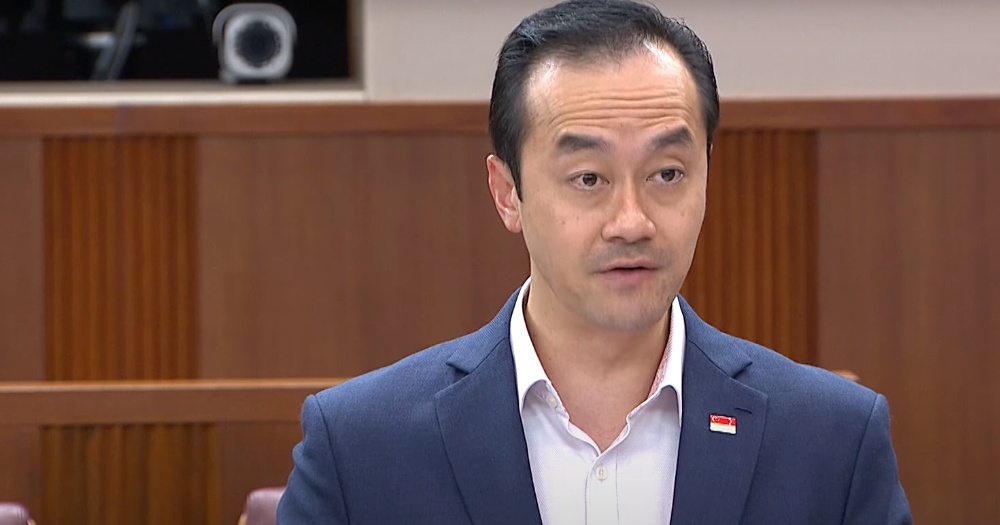The government is not ideologically against a minimum wage, but there are risks to adopting a single, blanket minimum wage, according to Deputy Secretary-General of NTUC and Senior Minister of State for Health Koh Poh Koon, on Thursday (Oct. 15).
Koh's speech addressed recent remarks made by members of the Workers' Party, including Leader of the Opposition Pritam Singh, who called for the government to consider implementing a universal minimum wage of S$1,300 in Singapore.
Vast majority of low wage workers earn above proposed minimum wage
In his speech, Koh credited the Progressive Wage Model (PWM) for helping to raise the wages of workers at the lowest 20th percentile significantly over the the past 10 years, while moderating income inequality in Singapore.
"The PWM has lifted the wages of close to 80,000 cleaners, security guards and landscape workers. Their wages have increased by 30 per cent in recent years, without loss of jobs," said Koh.
As a result, the "vast majority" of low wage workers earn above S$1,300, which is the minimum wage proposed by the Workers' Party (WP), said Koh.
Quoting statistics from the Ministry of Manpower (MOM), Koh said that the residual number of workers who earned below S$1,300 is about 100,000. He added that a quarter of this number are self-employed, and therefore would not benefit from a minimum wage anyway.
After the Workfare Income Supplement (WIS), which tops up the income of workers earning less than S$2,300, the number of workers who earn less than S$1,300 is about 32,000, which works out to be about 1.7 per cent of Singapore's local workforce.
"So what the Workers' Party wants to achieve with the proposed minimum wage of S$1,300, we have already achieved through Progressive Wage Model, Workfare Income Supplement and other policy measures," said Koh.
Not ideologically against a minimum wage
He said that the government has made "tremendous strides" in raising the wages of low income workers, although he acknowledged that it is still "unfinished business".
Koh also clarified that the government is "not ideologically against" a minimum wage.
He said that the first rung of the wage ladder in the PWM is a form of sectoral minimum wage, and also the fact that Senior Minister Tharman Shanmugaratnam previously referred to the PWM as a "Minimum Wage Plus", which is minimum wage, plus a ladder for wages to increase through upskilling.
Koh emphasised that the idea of having "some form of a minimum wage" is not new, and that the government shares the WP's objective of uplifting the incomes of low wage workers, although they may differ in the approach to getting there.
Difficult to set a correct minimum wage across all sectors
According to Koh, the problem with a blanket minimum wage is that it is difficult to ascertain the right figure for all sectors.
For example, if it is set too low, then the benefit to workers in many sectors will be limited, which defeats the purpose of a minimum wage.
He brought up the example of how the starting monthly salary for a cleaner in Town Councils today under the mandatory PWM is already S$1,422, which is higher than the proposed S$1,300 minimum wage, even before additional support for workers, such as WIS and overtime pay.
On the other hand, if the minimum wage is set too high, then businesses, especially Small and Medium Enterprises (SMEs), may not be able to pay wages for their workers.
This may lead to businesses passing the costs to consumers, or cutting back on employment of workers with lower education or skills. In the worst case scenario, this could lead to businesses closing down.
He added that while everyone wants to help low wage workers, there must be a basis for setting the minimum wage such that it reflects the "realities" of each sector, to keep it sustainable and avoid unintended costs.
Potential political issues with a minimum wage
Setting up a single blanket minimum wage is also risky, as it leads to the "inevitable politicisation of wage setting", Koh said.
He explained that if the proposed S$1,300 minimum wage was adopted, political entities may use the minimum wage as a way to garner support, by promising a steadily increasing minimum wage for the populace, which may not be sustainable.
Koh said that this possibility of a "political auction" is already happening in other countries, and that it will price out Singapore's lower-skilled workers, and disadvantage smaller businesses.
"In a political contest, a political party will likely come along to say S$1,500 reflects higher 'moral imperatives. Yet another will come and say S$1,300 is good, S$1,500 is better, but S$1,700 is even more 'divine' moral imperative. It can become a political auction," said Koh.
On the other hand since the PWM utilises a "sectoral, tripartite consensus-building approach", where the government engages different stakeholders of each industry, and arrive at a consensus together, it is less likely for a political auction to occur, reasoned Koh.
Top image via Gov.sg/YouTube.
If you like what you read, follow us on Facebook, Instagram, Twitter and Telegram to get the latest updates.
